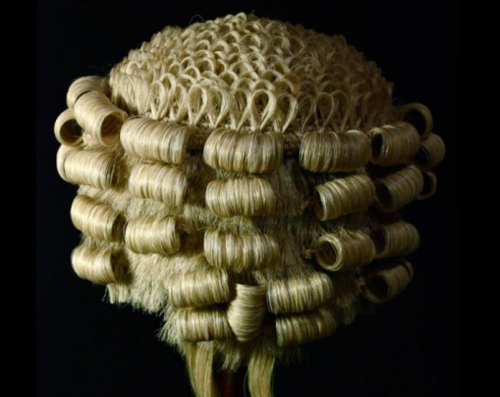KNOW THE LAW 26/05/2022
Does A Legal Practitioner Need To Inquire Into The Source Of Funds Of Professional Fees?

A legal practitioner is entitled to be paid his professional fees for work done for a client. The Rules of Professional Conduct 2007 provide that a legal practitioner is entitled to be paid his professional fees. However, the Rules as well as the Legal Practitioner Act 2004 are silent on whether a legal practitioner is required to inquire into the legality of the source of funds of his client to obtain professional fees. The Court in the case of FRN v Mike Ozekhome (2021) LPELR-54666(CA) have set a precedent in this regard.
In this paper, we shall discuss the above case in review as well as highlight relevant provisions of the Rules of Professional Conduct 2007, hereinafter referred to as the RPC. We shall also discuss the propriety of the decision of the Court in the instant case with reference to the Rules of Professional Conduct.
INTRODUCTION
A legal practitioner, by virtue of the Legal Practitioners Act 1976, is a person entitled in accordance with the provisions of this Act to act as a barrister and solicitor, either generally or for the purposes of any office or proceedings. A legal practitioner is expected to uphold the highest standard of discipline and must be of good character.
The Rules of Professional Conduct 2007 (RPC) are the guiding principles for the conduct of a legal practitioner. It codifies the ethics of a legal practitioner in Nigeria. A breach of these ethics would amount to misconduct which is punishable as provided in the Legal Practitioners Act of 1976. It was further held in the case of Iteaogu v LPC (2009) NWLR (Pt 1171) pg 614 @ 620 that any conduct that constitutes an infraction of acceptable standard or behaviour or ethics of the legal profession or any conduct which connotes conduct despicable and morally reprehensible as to bring the legal profession into disrepute if condoned and unpunished will amount to misconduct.
Rule 1 of the RPC provides that a legal practitioner shall uphold and observe the rule of law, promote, and foster the cause of justice, maintain a high standard of professional conduct, and shall not engage in any conduct which is unbecoming of a legal practitioner. It charges legal practitioners with a responsibility to uphold the nobility of the legal profession and promote and observe the rule of law. This is the most important charge to any legal practitioner.
Rule 48 of the RPC goes further to provide that a legal practitioner is entitled to be paid adequate remuneration for work done for a client. It provides that a legal practitioner shall not charge or collect an illegal or excessive fee. The Rules are however silent on what would constitute illegal fees. Rules 48 to 52 of the RPC cover issues relating to remuneration of legal practitioners. It is interesting to note that nothing in the Rules relates to a legal practitioner investigating or inquiring into the source of funds of his client. The Rules concern itself mainly with the fact that a legal practitioner must be remunerated for work done for a client.
BRIEF FACTS OF THE CASE AND DECISION OF THE COURT
The former Governor of Ekiti state, Governor Ayodele Fayose (the Governor) was alleged to have been involved in the embezzlement of funds meant for the procurement of arms. The Economic and Financial Crimes Commission (EFCC) approached the Federal High Court in Lagos and obtained an interim order to freeze the accounts belonging to the Governor during their investigation. The Governor then approached the Ekiti state division of the same court and obtained a judgement setting aside the judgement of the Lagos division. He then proceeded to withdraw the sum of 5 million naira from one of the accounts and transferred 75 million naira to the law firm of Mike Ozekhome’s chambers as part payment of his professional fees for legal services rendered.
The EFCC then approached the Lagos division of the Federal High Court in Lagos seeking an interim order to freeze the Guaranty Trust Bank account of Mike Ozekhome’s chambers for a period of one hundred and twenty days (120 days). The order was granted based on ex-parte application and evidence tendered solely by the Appellant. Chief Mike Ozekhome SAN then filed a motion before the trial court to unfreeze his account on the grounds of suppressed facts, non-compliance with the rules of the trial court and judicial authorities on granting ex-parte applications. The Court granted his application by setting aside the interim order freezing his account.
The EFCC then appealed to the Court of Appeal who then upheld the decision of the lower court on the grounds that the EFCC had suppressed material facts in obtaining the order. It further held that the 75 million naira was part payment of professional fees and cannot be termed proceeds of illegal activity as a lawyer is not required by any law to inquire from the client, the source from which his legal fees would be paid.
COMMENTARY
The legislative drafters made no mistake in excluding a provision which requires legal practitioners to inquire into the source of funds of their clients. A legal practitioner is expected to perform his duties to his client competently and is expected to be paid his professional fees at when due. There is a presumption of innocence as enshrined in Section 36 (5) of the 1999 Constitution of the Federal Republic of Nigeria (as amended) on the part of the legal practitioner to his client. A legal practitioner need not then concern himself with the legality of the source of his client’s funds. What should concern him is payment of his fees.
A further implication of this decision is that a legal practitioner is free to represent his client to the best of his abilities and demand his professional fees without fear of harassment from the EFCC or other bodies. They can now render their legal services without fear of being investigated as regards fees paid to them by clients under criminal investigation.
It is worthy to note that the Appellants had argued that by virtue of section 25 of the Money Laundering Prohibition Act 2001, legal practitioners fall within the definition of designated non-financial institutions. The effect of this being that they are required to register with the Special Control Unit Against Money Laundering (SCUML) to prevent money laundering and terrorism. The Act requires any designated non-financial institution involved in cash transactions to declare its activities to the Ministry of Finance hence the requirement of registration with SCUML and obtaining of a certificate to the effect.
However, the Court relied on the decision of the Court of Appeal in Central bank of Nigeria v. The Registered Trustees of the Nigerian Bar Association CA/A/202/2015 (unreported) to hold that legal practitioners are excluded from the definition of designated non-financial institutions as contained in the Money Laundering Prohibition Act and are therefore not required to register with the Special Control Unit Against Money Laundering.
The decision of the Court in CBN v The Registered Trustees of the Nigerian Bar Association supra goes further to highlight the fact that as it relates to matters between legal practitioners and clients, no other body (in this case the EFCC) can intervene or meddle. In the instant case, three issues were raised. The issues were whether SCUML is the body authorized to regulate the conduct of legal practitioners, whether it is a juristic body, and whether in view of the Legal Practitioners Act (LPA), Evidence Act and the 1999 Constitution of the Federal Republic of Nigeria (as amended), the legal profession is not already well regulated. The Court resolved all the issues in favour of the plaintiffs. The court presided by Justice Gabriel Kolawole, gave an order of perpetual injunction restraining the Federal Government, the CBN and the SCUML from seeking to enforce Section 5 of the MLA against legal practitioners.
The Court held that no other body could sanction a legal practitioner without violating the provisions of the Legal Practitioners Act which is an act promulgated principally for regulating the legal profession. It held that the EFCC stands in the position of an outsider in matters of such nature and so lacks the required locus standi to question the basis of the fees paid to a legal practitioner by his client.
CONCLUSION
The writers’ conclusion starts on a lighter note with reference to 1 Timothy 5:18 (The Holy Bible, English Standard Version) which states that “For the Scripture says, “You shall not muzzle an ox when it treads out the grain,” and, “The laborer deserves his wages.” The decision of the Court in the case in review has highlighted the fact that regardless of the source of funds which fees are to be paid from, a legal practitioner must in fact be remunerated adequately for work done and services rendered to his client. He need not concern himself with matters such as the legality of such funds or the manner with which such funds were procured. The position is relatively similar in other jurisdictions. The United States Attorneys Manual (USAM) provides that attorneys should not be prosecuted under the US money laundering statute on the receipt of bona fide fees for legitimate representation.
It is however important to note that the conduct of a lawyer reflects on the legal profession and as such a lawyer must not conduct himself in such a manner as to bring disrepute to the profession. Rule 1 of the Rules of Professional Conduct charges lawyers to maintain a high level of discipline and professional conduct. This must essentially reflect in all aspects of professional conduct.
Legal practitioners are further advised to properly document agreements and ensure the terms of engagement between them and their clients are properly detailed and executed to help circumvent issues of default in payment of fees.



